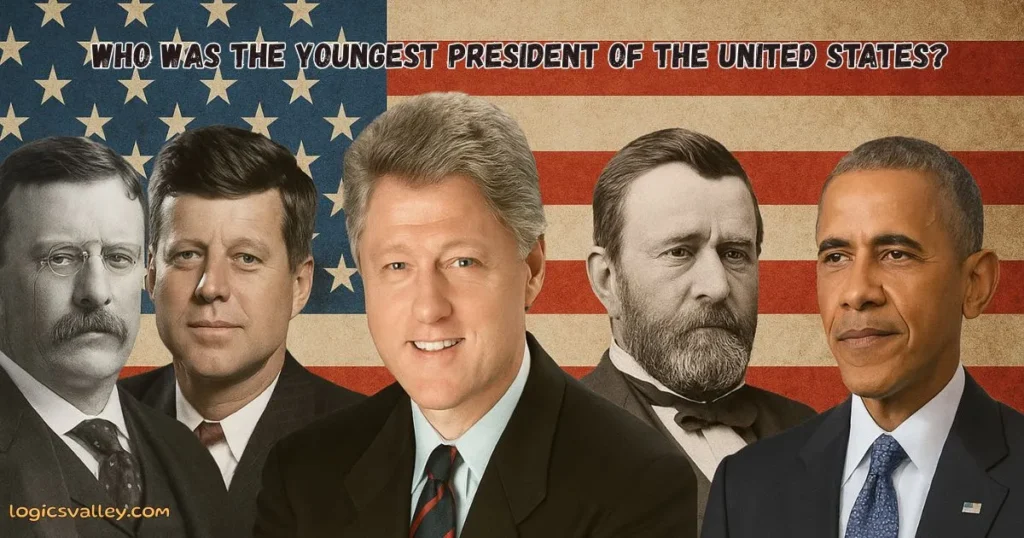When it comes to American history, one question often sparks curiosity: Who was the youngest president of the United States? This is not only an interesting fact about leadership but also a reflection of how youthful energy and vision can shape a nation. Many people assume John F. Kennedy was the youngest president because of his charisma and the era he represented. However, the real answer might surprise you.
Theodore Roosevelt – The Youngest President Ever
The actual record-holder is Theodore Roosevelt, who became president at the age of 42 years and 322 days in 1901. Roosevelt did not win his first presidential election; instead, he assumed the role after the assassination of President William McKinley.
Roosevelt’s youth brought vigor and a fresh approach to the presidency. He is remembered for his progressive policies, love for nature, and strong stance on foreign affairs. His leadership symbolized an energetic, modern America stepping into the 20th century.
John F. Kennedy – The Youngest Elected President
While Roosevelt holds the title for being the youngest to become president, John F. Kennedy was the youngest to be elected president at 43 years and 236 days old in 1960.
Kennedy’s presidency marked a new era of hope and inspiration. His speeches, especially the famous line “Ask not what your country can do for you—ask what you can do for your country,” showcased how youthful leadership could inspire generations. His handling of the Cuban Missile Crisis and commitment to the space race made his short presidency one of the most iconic in U.S. history.
Why Age Matters in Leadership
Age has always been a factor in how leaders are perceived. Younger presidents like Roosevelt and Kennedy represented:
- Energy and boldness – quick decision-making and adaptability.
- Modern ideas – appealing to younger generations.
- A sense of connection – bridging gaps between traditional and new thinking.
On the other hand, older presidents often bring decades of experience and wisdom. This balance between youthful dynamism and mature stability shapes the democratic process in America.
A Look at Other Young U.S. Presidents
While Roosevelt and Kennedy top the list, other presidents also entered office at relatively young ages:
| President | Age at Inauguration | Unique Contribution |
|---|---|---|
| Bill Clinton | 46 | Focused on economic reforms and globalization. |
| Ulysses S. Grant | 46 | Civil War hero who worked on Reconstruction. |
| Barack Obama | 47 | First African-American president; emphasized healthcare reform and diplomacy. |
This table shows that being younger than 50 has not been unusual in U.S. history, and each of these leaders brought fresh perspectives to the presidency.
Older Presidents for Comparison
In contrast, recent history has seen older presidents taking office. Donald Trump became president at 70, while Joe Biden holds the record as the oldest U.S. president to take office at 78. This shows a wide age spectrum in presidential leadership, proving that both youth and age can be effective in governance, depending on vision and leadership style.
Read More: What’s the Cost of Doing Business Under Trump?
Final Thoughts
So, who was the youngest president of the United States? The answer is clear: Theodore Roosevelt at 42 years old. However, John F. Kennedy holds the distinction of being the youngest elected president, making both men historic symbols of youthful leadership in America.
Their presidencies show that age alone does not define success. What matters is vision, determination, and the ability to inspire a nation. From Roosevelt’s energetic reforms to Kennedy’s inspiring call to action, America’s youngest presidents left legacies that continue to influence the world today.
Conclusion
In answering the question, “Who was the youngest president of the United States?”, history gives us two memorable names: Theodore Roosevelt, who became president at just 42 after McKinley’s assassination, and John F. Kennedy, the youngest elected https://www.usnews.com/news/politics/slideshows/the-10-youngest-presidents at 43. Both men proved that age is not a barrier to leadership—what truly matters is vision, courage, and the ability to inspire a nation.


